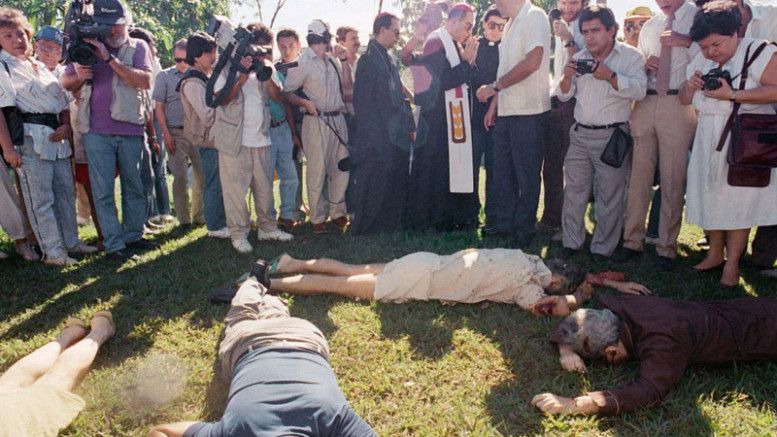• Salvadoran Supreme Court rescinds country’s Amnesty Law protecting military
• Extradition of suspects in Jesuits’ murder on hold, pending trial in El Salvador
The anticipated extradition to Spain of 17 military officers and soldiers from El Salvador implicated in the brutal 1989 murder in that country of five Spanish Jesuit priests, a Salvadoran Jesuit colleague, their housekeeper and her daughter was thrown into doubt late last week by the Salvadoran Supreme Court’s rescission of that country’s 1993 Amnesty Law, paving the way for the possible prosecution of the suspects in their home country and not in Spain.
Ostensibly part of a peace settlement that paved the way for a return to democracy after El Salvador’s bloody 12 year civil war, the Amnesty Law was hurriedly approved by the Salvadoran Congress in 1993 just five days after a UN Truth Commission report declared the country’s military responsible for 85 percent of the extrajudicial killings and human rights abuses that occurred during the war. Until last week’s Supreme Court ruling, the Amnesty had protected both the military and rebels of the Farabundo Marti National Liberation Front (FMLN) from prosection for alleged abuses committed by either side during war, which lasted from 1980-1992 and resulted in the deaths of more than 75,000 and thousands more forced disappearances of civilians.
Because the amnesty protected those who murdered the Jesuits from prosecution in El Salvador, a Spanish judge responding to a lawsuit filed the Spanish human rights organization Asociación Pro Derechos Humanos de España (Apdhe) ordered the arrest of 17 suspects in January, one of whom is slated to be extradited from the United States and four more of whom were arrested in El Salvador pending extradition.
Last week’s Salvadoran Supreme Court ruling abolishing the Amnesty Law effectively suspended the extradition of the Salvadoran military to Spain for trial, however, until they can be first be charged and tried for the murder of the Jesuits in the Salvadoran court system. Other high-profile cases that may now be tried in El Salvador include the military’s massacre of hundreds of Salvadoran civilians at the village of El Mozote in 1991 and the dramatic 1980 assassination of Archbishop Oscar A. Romero by a right-wing death squad linked to the Salvadoran military.
► Read More in Spanish at El País and El Faro …
► Read More in English at The New York Times and Reuters via NCR …


